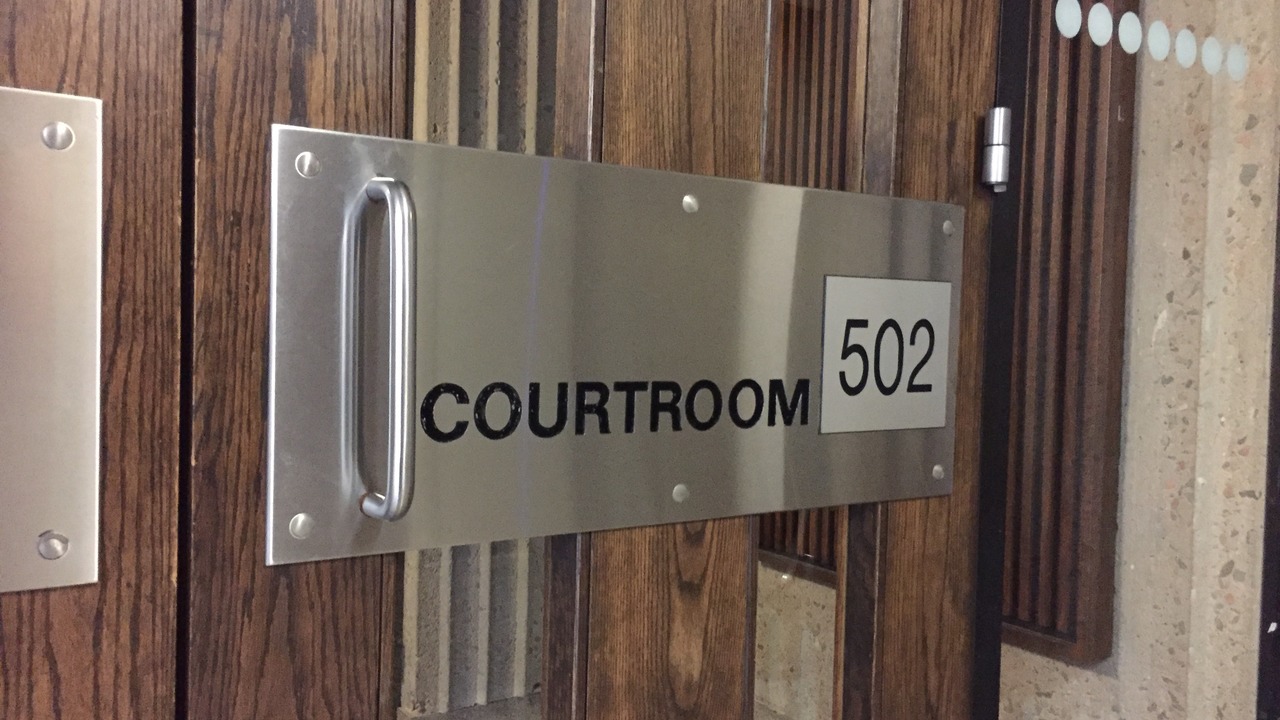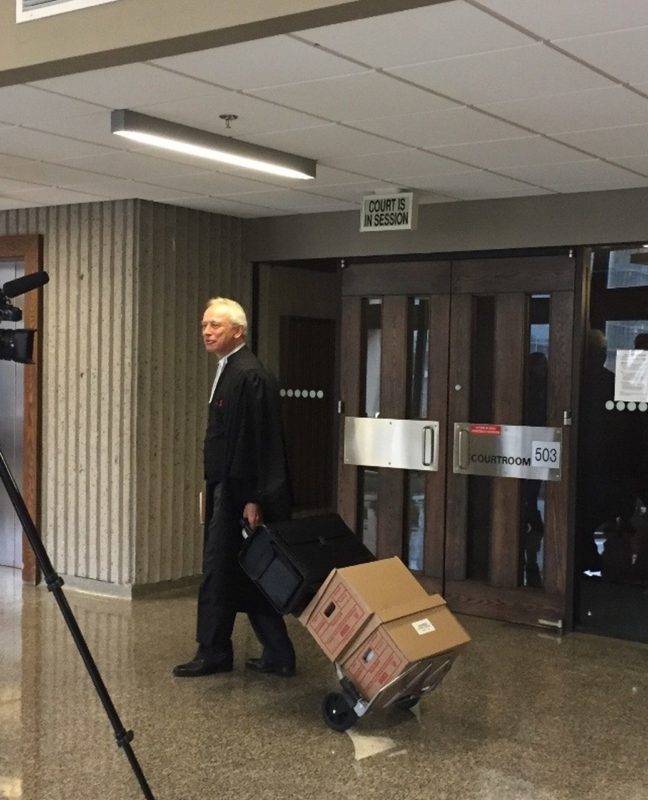Court hears Christopher Garnier appeal of murder conviction
In 2017 Garnier was found guilty of second-degree murder of Catherine Campbell

caption
Christopher Garnier's murder conviction appeal was heard on Tuesday by the Court of Appeal.The appeal of a Halifax man convicted of killing an off-duty police officer in 2015 was heard on Tuesday in Nova Scotia’s highest court.
Christopher Garnier, 31, was found guilty on Dec. 21, 2017, for the second-degree murder of Catherine Campbell and improperly interfering with her dead body.
Surveillance footage from a downtown bar on Sept. 11, 2015, shows Garnier meeting Campbell for the first time. Footage of the Macdonald Bridge hours later shows Garnier disposing of her body in a compost bin.
Campbell was strangled to death and her face beaten. The jury rejected Garnier’s defence that Campbell died accidentally from rough sex.
On Aug. 13, 2018, Supreme Court Justice Joshua Arnold sentenced Garnier to serve 13.5 years before he would be eligible for parole.

caption
Garnier shows police in his 2015 interrogation how he put his hands on Campbell’s neck.During the hearing in the Court of Appeal on Tuesday, the main debate was over the admissibility of the confession Garnier made to police before his trial.
Roger Burrill, representing Garnier, said the jury was not given enough information on the topic of false confessions. He said police pressured Garnier into confessing by saying he would be relieved if he did. Garnier told police repeatedly that he couldn’t talk, Burrill said, over the eight and a half hours of police interrogation.
Burrill called the parole ineligibility of 13.5 years “excessive,” and that 11 years would be better suited. Garnier received 13.5 years because of the aggravation of the crime, but Burrill said the only aggravating aspect was the “clumsy nature” of the body’s disposal.

caption
Roger Burrill said Garnier, who he represents, was pressured with a sense of urgency to confess.The Crown held there was no legal error in the length of parole ineligibility.
Crown attorney Mark Scott said Garnier was alert during the interrogation, not mistreated, and explained and demonstrated to the police how he killed Campbell. There was no explicit or subtle promise or threat, Scott said, from the police to Garnier. Not only does there have to be an inducement, it also has to be linked to the confession, said Scott.
Garnier did say he can’t speak, said Scott, but that doesn’t mean he was steadfast in that decision.
“‘I can’t’ doesn’t mean ‘I don’t want to speak.’ It could mean ‘I can’t yet,’ it could mean ‘I want to say so, but the lawyer told me not to,’” Scott said.

caption
Mark Scott, Crown attorney, said Garnier’s confession to police was voluntary.Just weeks after being found guilty, Garnier applied for an appeal from prison. During the trial, Garnier had Joel Pink as a private lawyer, but turned to Burrill from Nova Scotia Legal Aid for the appeal. Burrill applied to the Court of Appeal to be removed as Garnier’s lawyer, citing disputes with Garnier’s family, but agreed to continue the case.
A panel of three justices heard the appeal Tuesday. Garnier was not present, but members of his family were.
The court reserved its decision on the appeal.
About the author
Madeline Biso
Madeline Biso is a student journalist at University of King's College. Her main interests are investigative and data-driven stories. When not...
